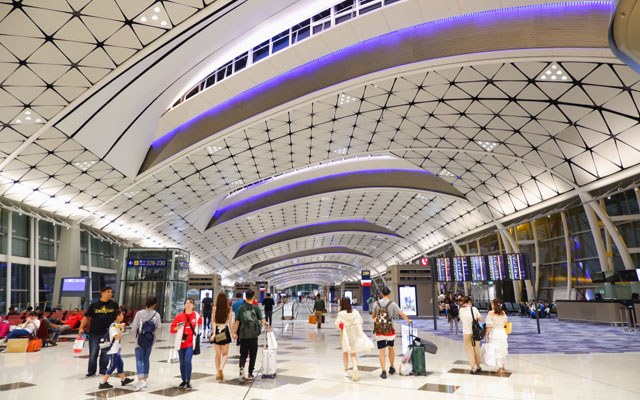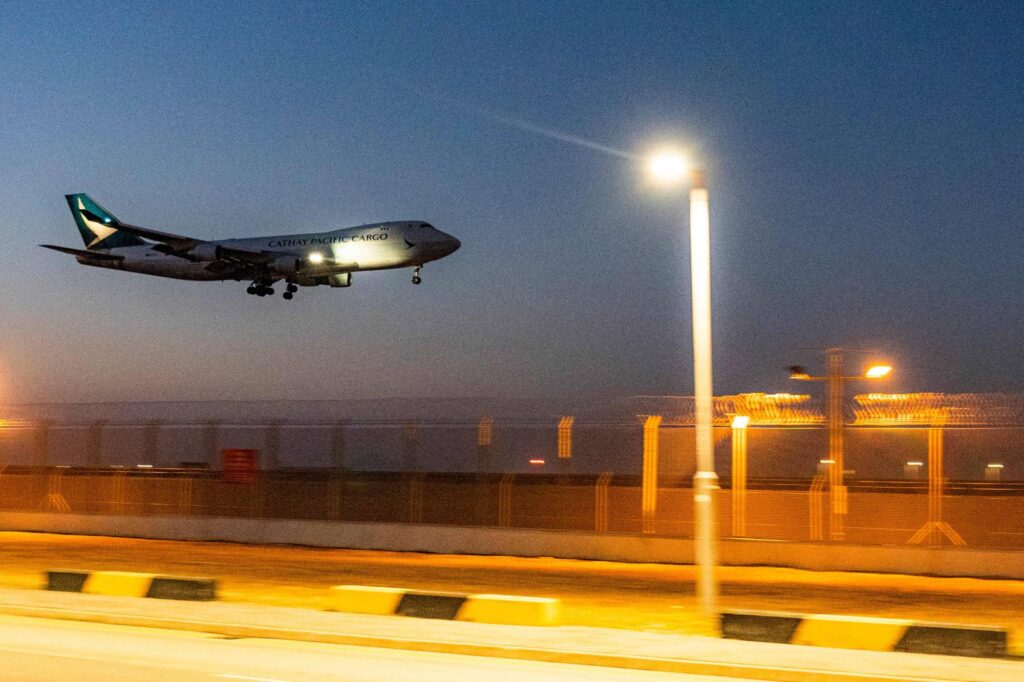After two years of next to no passengers and airline traffic, Hong Kong Airport may never recover its position as an international aviation hub.
Hong Kong International Airport
Hong Kong Airport faces an uphill battle to recover its international aviation hub status, says the boss of the International Air Transport Association (IATA). With Hong Kong management continuing to temporarily ban flights from certain airlines and ongoing isolation requirements in place, Hong Kong airport is falling off the map as people start planning and booking flights again.

IATA boss tells it will be challenging for Hong Kong Airport to recover
The Director-General of the airline trade group IATA, Willie Walsh, told a press briefing last week that Hong Kong Airport was “off the map now” and would be difficult for the airport to recover.
“Hong Kong can (be an aviation hub again), but it’s going to be a real challenge. Hong Kong has lost ground to a number of other hubs, which will have brought significant advantages to the difficulties in Hong Kong.
- “Hong Kong is always going to be an important market, but it’s not going to spring to mind for a lot of passengers when they’re looking at how they’ll travel unless they are specifically traveling to Hong Kong.
- “Hong Kong as a hub option? I think it has certainly slipped down the list significantly as a result of what’s happened there in the last two years.”
Hong Kong International Airpor latest passenger traffic f
Hong Kong International Airport’s latest passenger traffic figures cover February. In that month, the airport handled 86,000 passengers. In contrast, in February 2019, Hong Kong International Airport handled 5.89 million passengers. In an understatement, Hong Kong International Airport tells passenger numbers to stay “significantly down on pre-pandemic levels.”
Since the pandemic started, Hong Kong’s borders have stayed shut to almost all non-citizens/permanent residents. Hong Kong also started enforcing an extremely strict quarantine and self-isolation regime. In a small step forward late last month, authorities reduced the hotel quarantine requirements for travelers from nine countries from 14 days to seven days.

But many competitor airports in the region, particularly in Southeast Asia, are located in countries that have relaxed entry restrictions for fully vaccinated travelers. Singapore’s Changi Airport, Kuala Lumpur International, Bangkok’s Suvarnabhumi Airport, Manila’s Ninoy Aquino International Airport, and Ho Chi Minh’s Tan Son Nhat International Airport are all located in nearby countries that have reopened for business, whereas Hong Kong remains mostly off-limits.
Even if you arrive from one of the nine countries acceptable to Hong Kong authorities, the prospects of seven days of hotel quarantine aren’t pleasant. Underscoring everything is a more authoritarian regime in Hong Kong that is changing the city’s longstanding legal, financial, and social frameworks.
Also, read
- Russian drone destroyed by a new British Martlet missile in Ukraine
- Singapore takes delivery of another 59th Airbus A350s
- Qantas agreement with IndiGo, begin Flight on Sydney -Bengaluru route
Hong Kong authorities banned flights from
- Further eroding Hong Kong’s status as an international hub is the willingness of Hong Kong authorities to ban flights from selected airlines after that airline is found to have flown in a passenger who tested positive for COVID-19.
Earlier this month, Singapore Airlines, Emirates, Cathay Pacific Airways, Qatar Airways, Korean Air Lines, and Malaysia Airlines all got one week of flight bans. Emirates has been the hardest hit this year, with Hong Kong authorities suspending Emirates services for a total of 77 days so far.

The suspensions occur despite public health officials, rather than the airlines, being responsible for pre-departure testing in the origin nations.
Besides this being a case of shooting the messenger, airline insiders say the high risk of Hong Kong flights getting arbitrarily canceled erodes confidence among the traveling public. Like Willie Walsh, they argue passengers will simply bypass Hong Kong as a transit airport in favor of more open and reliable airports in the region.
Thank you
Stay updated with Aviationa2z

